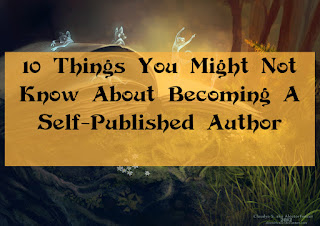Jules Renard on Writing
"Writing is a way of talking without being interrupted." Jules Renard.
This may seem like a very self-important thing to say - that we, as writers, should not be interrupted and you common folk don't know your place well enough to sit quietly and listen.
But sometimes, I've spent so long thinking through an idea that, when I'm done, I just want to get it out. Interrupt me, and the idea is off the rails chasing down the various rabbit trails conversation invariably builds. And that's with ideas that will take maybe five minutes to disclose. A novel? Yeah, might need to let me just go with that one.
Prevailing writing wisdom also says you want to write a book that people cannot put down - that chapters should end at just the right place so readers feel compelled to get through just one more page. After which, of course, they'll feel compelled to finish that chapter too.
So, quite literally, readers should not even be able to shut you up until you've said your piece. And you might think actors are an egotistical, self-centered, and self-important bunch. They only keep you occupied for a couple hours - writers try to keep you up all night. So perhaps being a good reader also makes you a good listener.
Unless you're one of those vile creatures that writes notes in the margins - as if what you have to contribute is important! Ha! We didn't need your help to write the story; you think your little scribbles and transparent-yellow ink matters? As if you get to decide what's important or what's not? Our characters don't even listen to us about what to do, when, and where. Your puny efforts to try to take control of a book the way you dominate conversations around you in the real world are laughable.
.
.
.
Well that went downhill. I'll just, uh, leave you to it. Thanks for reading along.
This may seem like a very self-important thing to say - that we, as writers, should not be interrupted and you common folk don't know your place well enough to sit quietly and listen.
But sometimes, I've spent so long thinking through an idea that, when I'm done, I just want to get it out. Interrupt me, and the idea is off the rails chasing down the various rabbit trails conversation invariably builds. And that's with ideas that will take maybe five minutes to disclose. A novel? Yeah, might need to let me just go with that one.
Prevailing writing wisdom also says you want to write a book that people cannot put down - that chapters should end at just the right place so readers feel compelled to get through just one more page. After which, of course, they'll feel compelled to finish that chapter too.
So, quite literally, readers should not even be able to shut you up until you've said your piece. And you might think actors are an egotistical, self-centered, and self-important bunch. They only keep you occupied for a couple hours - writers try to keep you up all night. So perhaps being a good reader also makes you a good listener.
Unless you're one of those vile creatures that writes notes in the margins - as if what you have to contribute is important! Ha! We didn't need your help to write the story; you think your little scribbles and transparent-yellow ink matters? As if you get to decide what's important or what's not? Our characters don't even listen to us about what to do, when, and where. Your puny efforts to try to take control of a book the way you dominate conversations around you in the real world are laughable.
.
.
.
Well that went downhill. I'll just, uh, leave you to it. Thanks for reading along.


Comments
Post a Comment